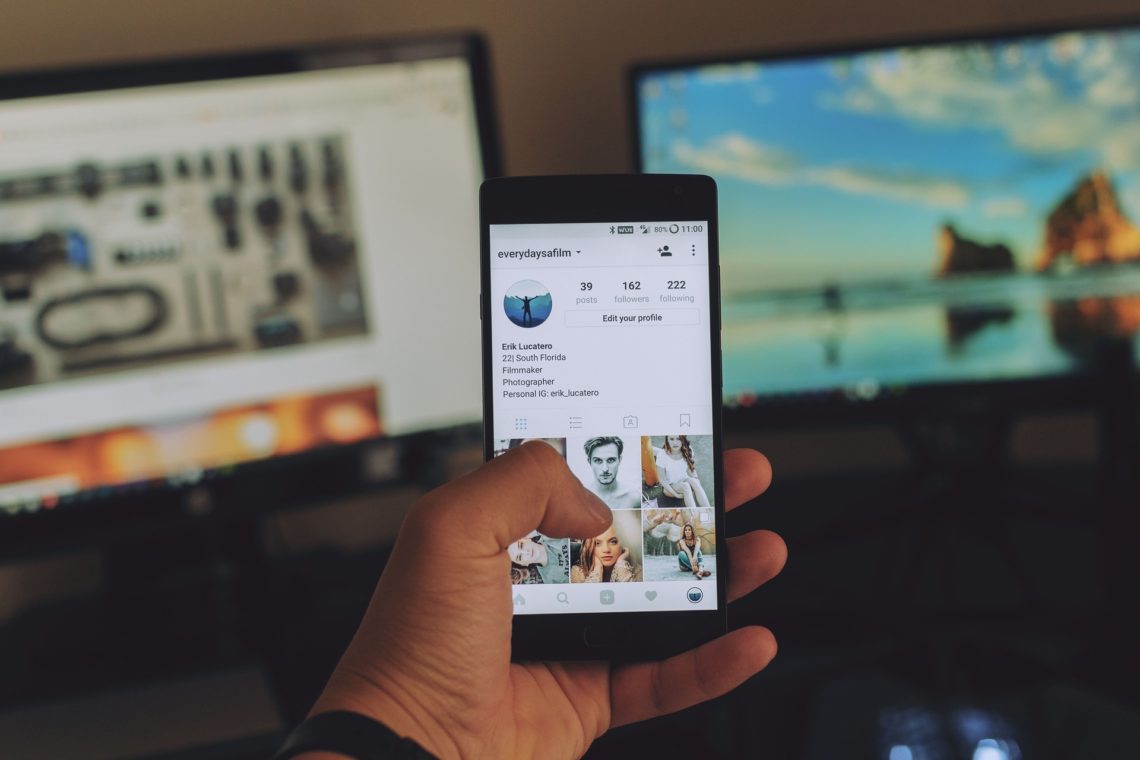By Lorien Kauffman
In a speech last October, former president Barack Obama said, “I do get a sense sometimes now among certain young people…that the way of me making change is to be as judgmental as possible about other people and that’s enough.” Obama questioned the idea of being politically “woke”, referencing call-out or “cancel” culture, saying, “The world is messy, there are ambiguities.” Obama claimed to cancel or “throw stones” at someone “…is not activism, that is not bringing about change” (Guardian News, 2019). The top definition of “canceled” in Urban Dictionary is “to dismiss something/somebody. To reject and individual or an idea” (Flossy333, 2018). In modern times, to cancel someone is generally to block them out socially, both in person and on social media, for their hurtful or insensitive actions or beliefs. In a time where polarizing opinions often cause aggressive confrontations, it is important to set healthy boundaries for yourself. However, is “canceling” someone with hurtful opinions really the best way to do this? Not only is life too “full of ambiguities,” as Obama said, to shut out everyone who has done wrong, but when this action to define and label what and who is in the wrong is not followed up by a positive solution, it has a lot less power to bring about change.
Though some use social media platforms for activism, “canceling” someone can be used in other, more harmful, ways. The New York Times interviewed one high school student who was canceled by her friends during her sophomore year. Her friends refused to communicate with her, in person or on Instagram, for months on end. Finally, she asked what was happening and received a flood of messages telling her that she was canceled for being, “annoying and petty” and having “ruined her self-esteem.” She began to doubt herself, wondering if her personality truly was repulsive, and if she deserved to be shunned. Though things improved the next year, the girl still feels prone to questioning herself, and agonizes over what affect her actions will have on others. As she said in the interview, “We all do cringey things and make dumb mistakes and whatever. But social media’s existence has brought that into a place where people can take something you did back then and make it who you are now” (Yar, 2019). In this case, canceling wasn’t used for social justice or social awareness, it was simply used for bullying. Outside the context of big-name celebrities, canceling someone in our everyday lives can have an adverse effect on them- causing alienation and the loss of close friends. Social alienation is not a trivial punishment, especially now, when everyone is connected on social media with more people than ever before, therefore the act of cancelation should be used with care.
Like Obama said, widespread cancelation does not reflect the ambiguities of real life. Internet outrage is a powerful tool, but a blunt one. If hundreds or even thousands of people condemn a person for a specific action, it is easy for nuances to get lost in the uproar. Mayim Bialik, an actress in the Big Bang Theory, wrote a controversial essay for the New York Times titled “Bing a Feminist in Harvey Weinstein’s World” in 2017. In it, she claimed she avoided sexual assault while working in the film industry by dressing modestly and not acting flirtatiously, saying “I have decided that my sexual self is best reserved for private situations.” Bialik goes on to add, “In a perfect world, women should be free to act however they want but our world isn’t perfect. Nothing–absolutely nothing– excuses men for assaulting or abusing women. But we can’t be naive about the culture we live in.” Soon after, she received and angry backlash of tweets such as, “This is disgusting. @missmayim is placing blame on victims and forgetting that rape and assault are about power, not about desire.” Bialik responded by apologizing, though also stated, “That’s not at all what this piece is about. It’s sad how vicious people are being when I basically live to make things better for women” (Beauchamp, 2017). In this case, I wouldn’t defend Mayim Bialik. To claim that dressing or acting modestly is a way to avoid sexual assault and harassment is both ignorant and untrue. However, to attack her for this specifically is to ignore the broader scope of her view point. I believe Balik was right that nothing excuses assault and that it is wrong to assume the problem of sexual assault in the film industry is fixed simply because it is more widely known. The response of canceling her both ignores the “ambiguities” and nuances of the issue, and fails to provide any solution.
I think the main issue with widespread cancelation is that it doesn’t have as much power to change people, or society as a whole, for the better. It is true that getting notified that one’s behavior is problematic may cause some people to examine themselves and change. However, there is not much incentive to do so. A person who is canceled is often faced with two options: attempt to change and apologize for a chance at grudging acceptance, or withdraw to find commiseration and support with other people who are canceled. Many people who are canceled feel misunderstood and simply want a platform to explain themselves. The Rubin Report, a podcast run by Dave Rubin, provides such a platform. One speaker on the show, Ben Shapiro, who is “against abortion and diversity but for Ted Cruz” claimed, “Our culture is dying because we have no capacity for forgiveness or discussion” (McDermott, 2019).
A main reason why cancel culture is not a sufficient form of activism is because it does not reliably or consistently bring about change. Normal people with more low-profile jobs tend to suffer more from cancelation, losing close friends or job opportunities. Celebrities on the other hand may experience a minor scandal or temporary loss of support, but they often have such a large influence that it doesn’t have much of an effect. The pop singer Katy Perry was “canceled” by many on Twitter after facing two allegations of sexual misconduct. The outraged movement on Twitter rallied under hashtags such as #KatyPeryIsOverParty and #SurvivingKatyPerry, but it was very small compared to the support of her dedicated fans. The allegations weren’t taken seriously, and in the end those who spoke out about it did not accomplish much. Should the allegations have been taken seriously? With so many conspiracy theories surrounding celebrities these days, it’s hard to tell. The use of social media, where support for any strong opinion can be found, can make a movement seem more powerful than it actually is and cover up the fact that no real change has uncured. (Mahan 2019)
The effects of cancel culture may be only loosely related to the actions they condemn. There have been many cancelations among beauty youtubers, such as Laura Lee, who lost over 300,000 subscribers as well as business supporters in 2018 after the discovery of a racist tweet from 2012 was discovered and she released an apology video that seemed insincere. The cancelation was a huge blow to her career. Jeffree Sar, another beauty youtuber, was called out for saying the N-word in a past video. However, unlike Lee, he remained one to the most popular youtubers, maintains a successful makeup brand, and millions of followers. This may be because Lee’s apology video backfired, earning her more negative attention than the original transgression. However, the response is still somewhat disconnected from the action. Why should one youtuber’s career be ruined and another’s unaffected because of very similar insensitive actions in their past? Essentially, canceling doesn’t have much hold in the real world. Top celebrities, those we most want to be a good example for society, can often endure canceling unscathed and perhaps without changing their ways while regular people have more to lose. Canceling itself can have an adverse effect simply depending on how much outrage it catches to fuel the movement.
In our already extremely polarized society, we need to listen and have conversations with people who have different viewpoints than us, not shut them out. I agree that most of the time the actions people are canceled for are truly problematic, and should be addressed. However, the act of cancelation does not reflect the ambiguity of real-life situations. Cancelation does not give opportunity or incentive for people to change, simply making social divides greater. In short, though cancelation can send a clear message about what is and is not acceptable in today’s society, it doesn’t serve to improve it. Identifying an issue is one thing, but as long as cancelation serves as a way to frame people as villains while failing to propose solutions to the issues identified, it simply does not help society.
References
Beauchamp, S. (2017, October 15). Maylin Bialik’s Essay Gets Backlash for Placing Blame on Weinstein’s Victims. Retrieved from https://nylon.com/articles/mayim-bialik-harvey-weinstein-essay-backlash
Flossy333. (2018, March 10). Urban Dictionary. Retrieved from https://www.urbandictionary.com/define.php?term=Cancelled
Guardian News. (2019, October 30). Barack Obama takes on ‘woke’ call-out culture: ‘That is not activism’[Video file]. Retrieved from https://www.youtube.com/watch?v=qaHLd8de6nM
Mahan, Logan. (2019, August 20). Youthsplaining: everything you need to know about cancel culture. Retrieved from https://www.insidehook.com/article/internet/youthsplaining-everything-you-need-to-know-about-cancel-culture
McDermott, J. (2019, November 2). Those People We Tried to Cancel? They’re All Hanging Out Together. Retrieved from https://www.nytimes.com/2019/11/02/style/what-is-cancel-culture.html
Yar, S., Bromwich, J. (2019, November 2). Tales From the Teenage Cancel Culture. Retrieved from https://www.nytimes.com/2019/10/31/style/cancel-culture.html?action=click&module=RelatedLinks&pgtype=Article






3 Comments
Julia
I appreciate this is brought to attention; social media can be very toxic, people can be toxic. We all need to learn to leave the past in the past and not let it define us for who we are now. This is saddening of how true it is where an individuals status takes into factor for if you will be forgiven or not, that breaks my heart. We all desire compassion and kindness to be given to towards another so why do we not live in those words throughout our lives? I feel a good way to put this is we live a beautifully broken world; there are those who water the flowers and those who pick them.
Karl Thomas
Well written article. Its very insightful and a big issue I see in todays society. I did not realize there was a new term for people not wanting to hear an adverse opinion or something they don’t like. It’s rather sad that people are not allowed to be themselves or have opinions. I grew up in 80s and 90s where you did not shun someone for a different opinion and if you disagreed you had to tell them in person and not hide behind a keyboard. There were still people that didn’t talk to so and so because of whatever belief but for the most part you respected people for their belief and viewpoint. I remember hearing my parents have debates with each other and others about culture and politics. The debates were filled with the intention of teaching each other and based most of the time of facts or experience. But the bullying and mass ‘canceling’ was not there as it is today. A different viewpoint, opinion, or culture is not revered as in todays society; it is condemned and put on blast to shun. For America being a melting pot nation, it is not welcomed to be yourself. I believe that we all should follow a societal set of respectfulness and cohesiveness. For example, other countries expect you to assimilate to their societal standards, so for the US I think all citizens natural or immigrant should speak and learn English and understand American laws. But I don’t think is acceptable to make anyone be ashamed of their culture or beliefs. We should all respect each other on the basis that we are all human. The world would be boring if we all thought and were the same. I think cyber bullying and key board warriors need to be called out to stop this world of not accepting differences. I am not saying that everyone needs to agree but everyone needs to be respectful. I bet if you take away the keyboard and screen those who “cancel’ out others wouldn’t do be so disrespectful. It is different when you are face to face and you see the person and soul behind the culture/opinion.
Renee Endicott
I really liked your writing and how you supported your thesis. Honestly, “cancelling” is a new concept for me, I think I’ve heard it before, but never really knew what it meant. As a society, yes we need to stand up for what is right. Like you stated if it’s something from 8+ years ago, I don’t think it necessarily means that’s who they are today. I am most disturbed by the high school girls, I cannot imagine going through that in school. When I was in high school, we had pay phones, social media was not an issue. I realize today, it is a big issue and a place where a lot of bullying happens. This is very unfortunate. Although, I am brand new on TikTok and I have been seeing a lot of videos from many age groups calling for the bullying to stop and let’s spread positivity.